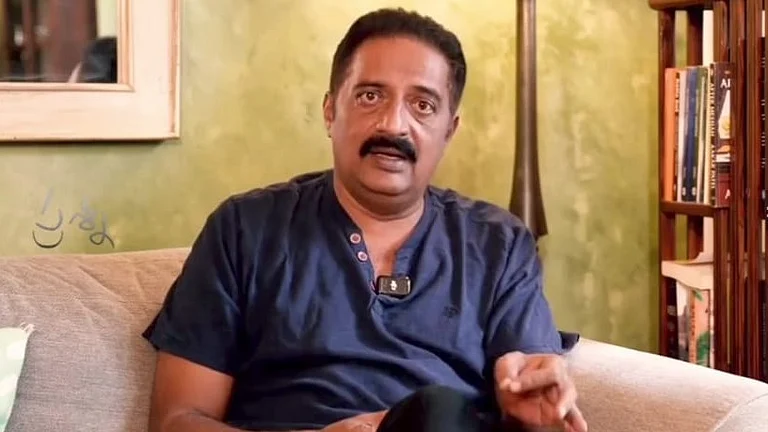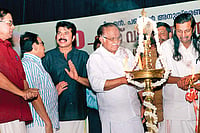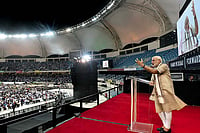What is common between Donald Trump and Narendra Modi? The penchant for referring to themselves in the third person and the narcissism and megalomania it betrays is an obvious one. Their disdain for the values of their constitutions and the men and women who preceded them in power is another common trait. Both messianic leaders thrive by pandering to the lowest common denominators in their polities with the clever use of rhetoric and spectacles.
How do they pursue their foreign policies? In trying to place their countries, both considerable powers in their own ways, on the world map and in regaining what both thought were lost glories, how did they ‘perform’? How did their pursuit of foreign policy with regard to each other’s countries, both under a spell of ultra-nationalism, fare so far? What chemical fusion or fission materialised when the two largely similar, yet disparate, ultra-nationalist leaders engage with each other?
Varghese K. George grapples with some of these vexatious questions in Open Embrace. The book came out around the time mid-term elections in the US have considerably dented Trump’s power. Imminent general elections in India may decide the fate of what Shashi Tharoor has called ‘Moditva’. The analysis presented gives the readers an account of the politics played by the two leaders on the foreign policy front in a way that only a reporter with his ears close to the ground can provide.
In other words, you will never get an account such as this from any of the so-called ‘strategic thinkers’ whose basic postulate is that external affairs and domestic politics are water-tight compartments. Being a political reporter who had reported the electoral victories of both messianic figures in The Hindu, Varghese is able to analyse his subject from a good vantage point.
Divided into five long chapters, the book begins with a succinct account of the decline of American power in the context of the return of the great power competition on the world stage, following two decades of unrivalled American dominance until 2010. It is into this scenario that Trump gatecrashed with his ‘America First’ slogan. It marked, according to Varghese, ‘the end of strategy, as the country’s grand designs over the past three decades lie in ruins’. Trump’s starting point, like that of Modi, was actually his declaration that US policies over the past three decades had been a colossal failure and a betrayal of what America stood for.
Varghese argues that the relative drop in American primacy was not because of any absolute decline of the country, but because of the ‘rise of the rest’. Trump is trying to reverse his country’s decline using an impulsive approach sans any cogent strategy, much like Modi’s efforts to assert India’s presence in the world. However, any “dramatic disruption of the world order and the resultant instability could be bad news for a developing country such as India,” he writes.
Modi’s worldview—Hindutva Strategic Doctrine, a hybrid of hyperrealism and religious nationalism—differs fundamentally from his predecessors in the sense that the latter always emphasised continuity in both domestic and foreign policies. For Modi and Trump, the emphasis has been on change—real or illusory. Modi has couched his foreign policy articulations in the language and idiom of Hindutva. In spite of the fact that it remained merely a rhetorical ploy, it endeared him even more to his core constituency of Hindutva supporters, especially legions of non-resident Hindus who never tire of glorifying India’s past while conveniently escaping its present.
The book argues that “Trump and Modi had both built their politics on the back of a huge amount of hype, but by now the limits of that hype was visible”. Domestically, both the leaders came to prominence through a crafty strategy of simultaneous consolidation and polarisation. On the international front, however, hype and rhetoric cannot carry you too far in the absence of policy and strategic framework.
“Strategic policy has never been a romantic pursuit for neither India nor America, but there has always been a veneer of idealism. Trump has buried all pretensions and semblances of idealism in America’s foreign policy. Modi tried to unravel the decades-old strategic architecture of India but appears to be fumbling back to conventional positions by the end of his term”, concludes the book, forebodingly adding that “perpetuation of their rule and legacy will change the contours of India and America forever”.
(The writer is a cultural critic and commentator based in Abu Dhabi)


























